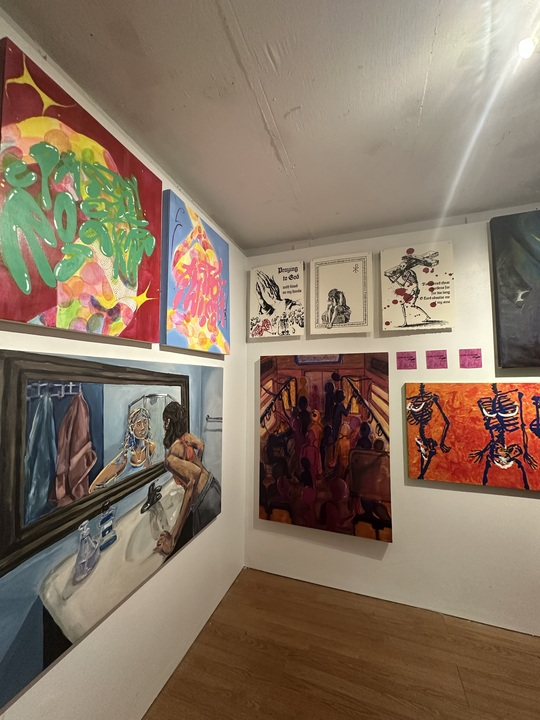Students role-play Middle East
April 4, 2006
Students from Nebraska to New York gathered at Pitt this weekend for hummus, grape leaves and… Students from Nebraska to New York gathered at Pitt this weekend for hummus, grape leaves and to bring new perspectives to a decades-old debate.
“Session: Middle East” is a role-play forum designed to discuss Israeli-Palestinian relations and develop political and cultural awareness of the region. Like the Model United Nations, it uses U.N. structures for debate and culminates in an award ceremony for the strongest participants.
Session: Middle East is also the name of the student organization at Pitt that designed and organized the event.
The organization’s mission is to better understand the complexity of the issues, eventually working toward the development of a certificate in Middle Eastern and North African studies.
They did a Pitt-only trial run of the conference last year, and this year opened it up to schools nationwide. Goals for the future include bringing in impartial judges from the community and increasing the number of schools involved.
The Session: Middle East conference has received national attention, with universities like CUNY City College, UC Irvine and University of Georgia looking to have their own in the future. Seven Truman Scholars and two Rhodes Scholars attended this weekend’s conference.
“This is a new type of conference, the first of its kind in the country,” said Daniel Armanios, a senior at Pitt who planned the event. “It encourages role reversal. For example, students who are Israeli will represent Palestinians, and vice versa.”
Another new element of the event is the inclusion of press agents and scientists in the role-play to enhance discussions of issues like water rights, technology and literacy, and nuclear proliferation.
“It’s not necessarily that we might create peace, but let people realize that we’re not that different. We can rediscover solidarity if we want to work with the other,” Armanios said.
The conference kicked off Friday with dinner from Nellie’s Sandwiches and a speech from keynote speaker Christopher Rosson.
Rosson is an economics and business administration dual-degree major from William Jewell College who has studied at Oxford University and spent time in Israel.
Rosson focused on the economic problems facing Palestinians and Israelis and how these might fuel violence. His strategies for improvement included a call for investment within the West Bank and increased integration of Israeli and Palestinian youth with the use of organized sports.
Students who attended the event demonstrated knowledge, curiosity and a desire to find solutions.
“I think what’s happening here is not a military situation. It is more political, more about poverty. It can’t be fixed with guns,” said Divash Basnet, a student from Wabash University.
Xuan Trang-Ho from Nebraska Wesleyan talked about her goals for the conference.
“I’d like to have a better understanding of the complexity of the issues of the region, and of the other,” Trang-Ho said.
Will Draxler, from the University of Georgia, and Saul Garlick, from Johns Hopkins University, won top honors for their performances. Five other students were commended for excellent and honorable mention work.
The judges’ panel was made up of Pitt and Chatham student committee chairs and the keynote speaker, so Pitt students were not eligible for awards.
“Even though we do discuss the Middle East, the methods are universal,” Armanios said. “[With] the idea of actively listening to the other you can create compromises the other can feasibly agree to.”


